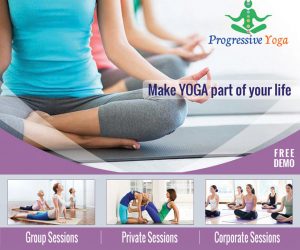Role of Yoga in Handling Depression: Asanas & its Treatment

Depression has been many a times wrongly labelled as a disease, where in reality it is nothing but a disorder which can be set back in order with a proper regiment of changes.
There are many factors, many types and many possible combinations of Depression. Common predisposing factors for the cause of depression are family history (someone in the family going through depression), any sort of trauma in the childhood, Stress because of a loss (loss in the family or job of finances), marital status, Physical disability or chronic illnesses, medication induced and in some cases demographic driven (women are at a higher ratio than men)
Depression has been defined as a common mental disorder characterized by sadness, loss of interest or pleasure, feeling of guilt and self-worth, disturbed sleep or appetite, feelings of tiredness and poor concentration (according to WHO)
The Pathophysiology of Depression – Cortisol also known as stress hormone goes high in case of depression or high stress levels.
Such prolonged high levels of Cortisol leads to reduced secretion of neurotransmitters like Serotoin, Dopamine, Glutamate, GABA which are all responsible for emotional behavior like mood, hunger, muscle functioning, hearing, memory, voluntary movement and preventing neurons from generating nerve impulses.
Can Yoga help? Yes regular practice of yoga along with healthy life style changes can bring in significant control and help in avoidance of reoccurrences of depression and its symptoms.
Asanas aiding Depression:-
Adho Mukha Svanasana (upward facing dog) – Reduces fatigue and helps mind to focus as it stretches the entire back and hamstrings
Marjariasana (cat) – Increases flexibility and strength if the back and helps in relaxing the mind
Balasana (child) – relieved stress and fatigue as body is stretched from neck to lower back
Halasana (Plough) – Helps in relieving constipation and stomach disorders and improves memory
Sethubandhasana (bridge) – Helps in strengthening the back, buttocks and hamstrings and alleviates depression
Veerbhadrasana (Warrior) – Strengthens legs and core, eases stress and anxiety
In addition to the above, pranayama techniques like Deep Breathing help in relaxation and reduce muscle tension.
It has been proven time and again that Yoga helps both in maintaining and curing or many pathological conditions like Diabetes, PCOD/PCOS, Osteoarthritis, Chronic Back Pain, Hypothyroid, sleep disorders and many more. However, a healthy life style changes along with a strict regimen of Yoga under a professional is required to achieve the desired results.
Check out these links for relevant information: ProgressiveYoga,
For more details contact us on 📞9618906780
